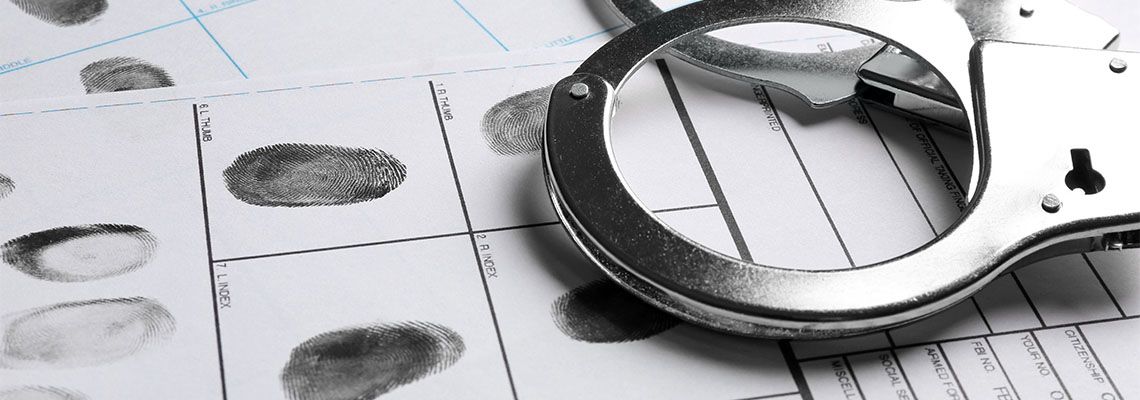Carrying a concealed weapon comes with serious responsibility. Understanding the rights and limitations tied to a concealed carry permit is critical for anyone looking to legally carry a firearm.

Can I Clear a Domestic Violence Charge From My Record?
Clearing a domestic violence charge from your record isn't an easy process, but it is possible. A domestic violence charge doesn't have to define your future, but it's essential to understand that every case is unique and no outcome is guaranteed. The result will depend on the specific circumstances and evidence involved.
No one should navigate this process alone, especially when dealing with such serious consequences that could impact various aspects of your life. That's where a skilled defense attorney becomes invaluable. They can assess your situation, explore all available options, and work towards the best possible outcome for you.
Exploring Your Options: Expungement and Acquittal
One possible avenue for clearing a domestic violence charge in Iowa is through expungement. This legal process allows for the sealing or erasing of a criminal record. If you're eligible for expungement, your domestic violence charge could potentially be removed from public view. However, eligibility depends on various factors, including the specifics of your case and your criminal history.
Another option is through a dismissal or acquittal. If your case goes to trial and you're found not guilty or the charges are dismissed, you can request to have the charge cleared from your record. This is considered a more favorable outcome.
Eligibility for Expungement
In Iowa, the eligibility for expungement is determined by specific criteria set by the state. Here's what you should know:
You must have successfully completed your sentence, including any probation or parole, and paid all fines, restitution, and court costs associated with your case.
Certain types of convictions are not eligible for expungement. These typically include forcible felonies like murder and sexual assault, but also certain misdemeanors such as domestic abuse and OWI (Operating While Intoxicated) offenses.
There's a waiting period before you can apply for expungement. For most misdemeanors, you must wait two years after completing your sentence. For certain aggravated misdemeanors, the waiting period is four years.
It's worth noting that even if you meet these criteria, expungement is not guaranteed. The court has discretion to deny an application if it determines that expungement isn't in the best interests of community safety. Given the complexity of this process and the importance of the outcome, it's highly recommended to enlist the representation of an experienced criminal lawyer.
Long-Lasting Impacts of a Domestic Violence Charge on Your Record
You likely already have your reasons for wanting to clear a DV charge from your record. But reaching out to an attorney to get the process started is an intimidating step. Is it all really worth the hassle?
Yes. It is. If you're eligible for expungement, you should feel encouraged to pursue that path. Don't let anything stand in the way of a brighter future. The following are some examples of the lasting repercussions a domestic violence charge can have:
Impact on Personal Life - Having a domestic violence charge on your record can significantly impact your personal life. It can strain relationships with family and friends, and in some cases, it may affect child custody, visitation rights, or divorce proceedings. It's not uncommon for individuals with such charges to experience changes in their family dynamics. The attorneys at Balduchi Law Office, PC, understand these implications and are committed to helping clients navigate these complexities.
Impact on Professional Life - Your professional life can also be affected by a domestic violence charge. Employers often conduct background checks, and a criminal record involving domestic violence can lead to lost job opportunities. In certain professions, it might even lead to termination or prevent you from obtaining necessary licensures. With experienced attorneys like Kent Balduchi and Austin Luse on your side, they'll work tirelessly to mitigate these potential consequences.
Legal Repercussions - The legal repercussions of a domestic violence charge can be severe and long-lasting. A conviction can result in incarceration, hefty fines, mandatory treatment programs, or probation. Furthermore, having a domestic violence charge on your record can complicate future legal issues, as courts may view past charges unfavorably.
Impact on Rights and Freedom - A domestic violence charge can also infringe upon your rights and freedom. Depending on the severity of the charge, you may lose certain rights, such as the right to possess a firearm. Freedom of movement can also be affected, as conditions of probation or parole may limit where you can go.
Clearing a domestic violence charge from your record in Iowa isn't an easy process, but it's possible with the right legal representation. Balduchi Law Office, PC, located in Des Moines, Iowa, and serving clients throughout Polk County and surrounding areas, can provide the guidance and support you need.
The Importance of Legal Representation
The first step in your record-clearing journey should be consulting an experienced defense attorney, like Kent Balduchi or Austin Luse from Balduchi Law Office, PC. Their extensive knowledge of criminal law can guide you through this complex legal process, helping you understand your options and potential steps to take.
Remember, facing a domestic violence charge can be a challenging time, but you don't have to go through it alone. Don't hesitate to reach out to Balduchi Law Office, PC for a consultation. You're not just a case number to them; they understand the personal impact of these charges and are committed to helping you through this difficult time.
RECENT POSTS
Divorce in Iowa and across the United States can be a challenging experience, but when children are involved, the situation becomes even more complicated.




